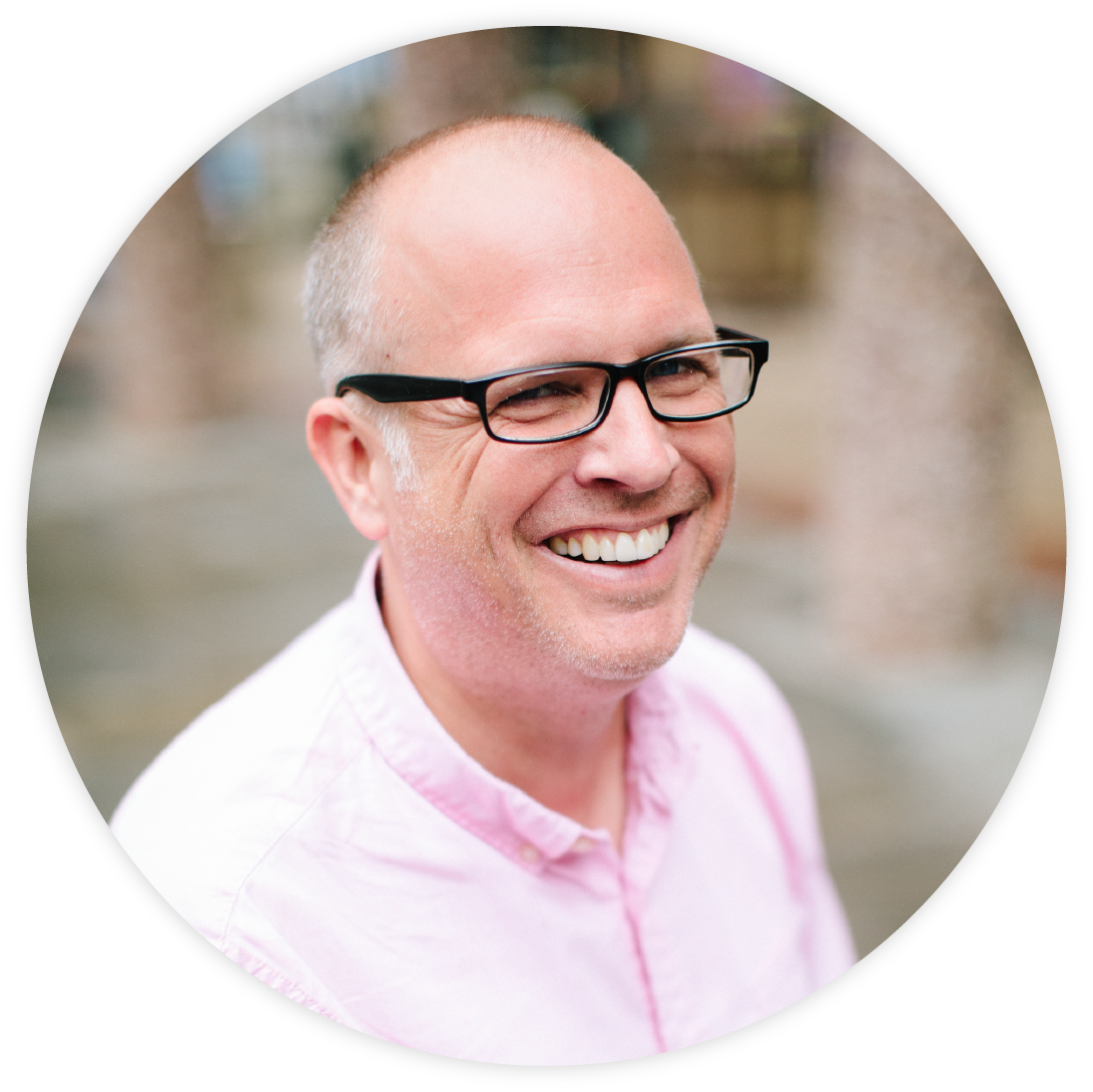Oct 29, 2019
Podcast: How to Avoid Money Mistakes with Joe Saul-Sehy
Guest Joe Saul-Sehy talks money lessons we all wish we knew sooner.
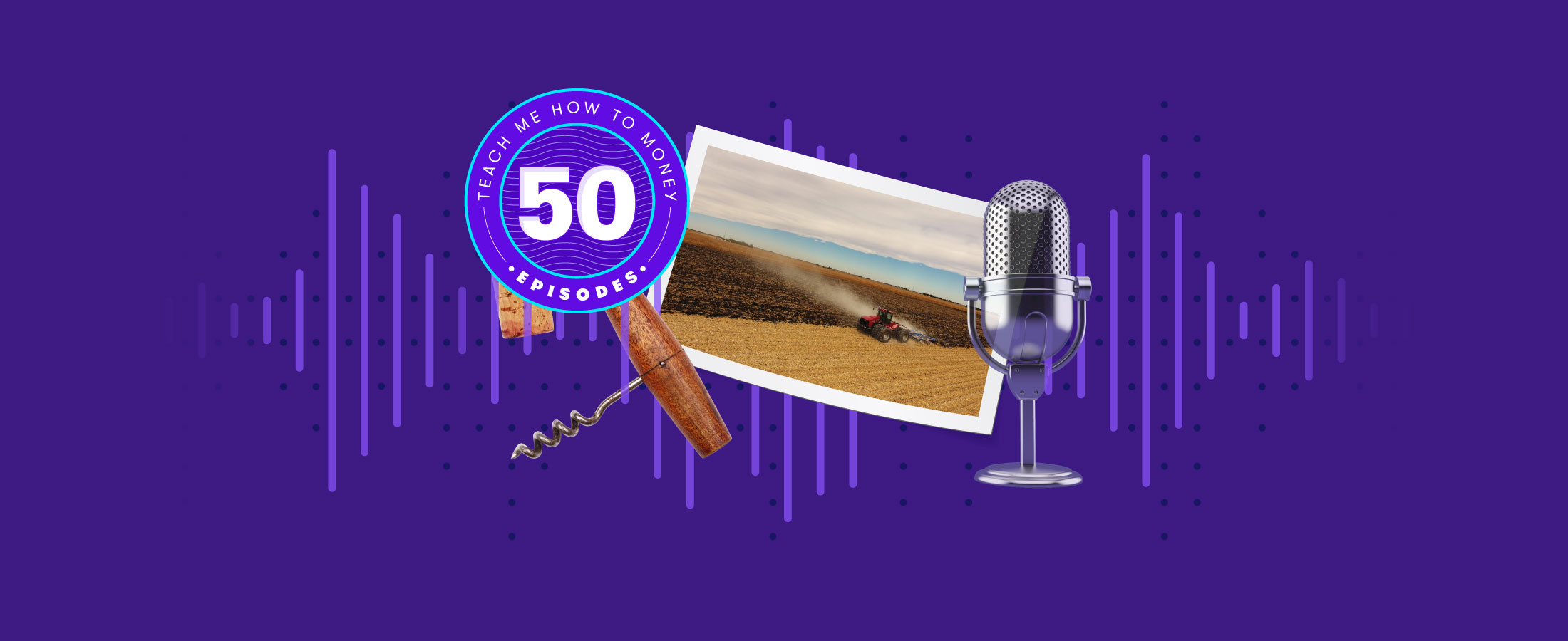
Leave us your review on Apple Podcasts, or wherever you listen to your favorite podcasts.
Learning to balance risk with reward in the stock market, starting your own business, and sorting out how much debt you should take on for home and college loans are just a few of the things we talk about on this episode of Teach Me How to Money, with guest Joe Saul-Sehy. In addition to his podcast Stacking Benjamins, Saul-Sehy has advised people about money for decades. His big advice: be sensible about risk when investing, but don’t avoid risk completely.
Jargon Hack.
What is APR?
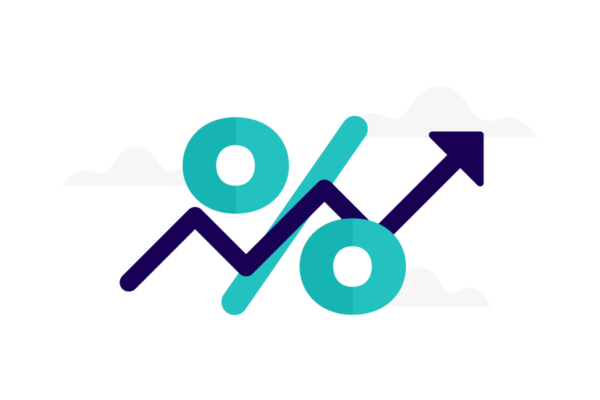
APR
Stands for annual percentage rate; it’s how much interest you pay each year on your loans.
Joe Saul-Sehy is a former financial advisor (16 years) and represented American Express and Ameriprise in the media. An amazing storyteller, Joe is the co-host of two well-loved financial podcasts: “Stacking Benjamins” and “Money with Friends.” He was the “Money Man” at Detroit television WXYZ-TV, appearing twice weekly. He’s appeared in Bride, Best Life, and Child magazines, the Los Angeles Times, Chicago Sun-Times, Detroit News and Baltimore Sun newspapers. He’s also appeared online in more than 200 different places, including CNBC.com and WSJ.com.
Transcript
Jeremy Quittner: Welcome to Teach Me How To Money. I’m your host, Jeremy. On this week’s episode, we’ll be talking with the money podcaster Joe Saul-Sehy, but before we get to the interview, our jargon hack this week is APR. APR stands for annual percentage rate. Basically how much interest you pay each year on your loans. Credit cards have them so do mortgages, auto loans, and other forms of debt. And it’s the amount that’s charged on any unpaid balance every month. You owe it, in addition to the balance of the loan. Here’s the thing though, when it comes to credit cards an APR is typically charged every day to your credit card balances. You heard that right, each day to find out what your daily APR is, divide the yearly rate by 365 which is the number of days in a year. That’s how much interest you pay every 24 hours on unpaid balances. So that’s our jargon hack for the week. Now let’s get to the interview.
Make Stash your new financial home, use promo code ‘podcast10‘ when you sign up to get $10 placed in your new investment portfolio.
Did you ever make a big mistake with money that you wish you’d never done? Whether that was too much credit card spending or buying something you really couldn’t afford, or maybe it’s just grinding away, living paycheck to paycheck. Today we’ll be speaking with Joe Saul-Sehy, he’s the creator of the award-winning podcast, Stacking Benjamins, which is all about improving people’s financial literacy. In addition to the podcast, Saul-Sehy was a financial advisor for more than a decade and he’s seen it and heard it all. Today we’ll be talking with him about money lessons we all wish we knew earlier rather than later. Welcome to the podcast, Joe!
Joe Saul-Sehy: Hey, thanks for having me, Jeremy!
Jeremy: It’s great to talk with you. So do you really broadcast your podcast from your mom’s basement?
Joe: Absolutely, yeah, because every podcaster out there, as you know, is running away from mom’s basement and there are so many cool indie podcasters out there. We decided we’d just own it. You know, if you’re in mom’s basement, own it.
Jeremy: It’s cheaper too, I bet.
Joe: Absolutely. And they say that the big three expenses that you have in life are your housing, your automotive costs, and your food. Right? So we’ve got one of those covered.
Jeremy: Yeah. Awesome. Well with that in mind, is her mom actually gonna make an appearance while we’re talking?
Joe: Hopefully not. Cause she generally, unless we get too loud then she might.
Jeremy: Yeah say “keep it down, down there. What are you guys doing?” All right, so you’ve been a financial advisor for years and your podcast is all about money. So what are the top mistakes that people make early on in their financial lives do you think?
Joe: I think the biggest thing is that people aren’t aggressive enough. And I mean that in two ways. So when I was in my early twenties, I was working three jobs, I was paying my way through school. I was worried about so many different things besides the future. I mean there were so many problems today because I was just trying to put my life together. And I think there’s probably a lot of people nodding their head that are listening to this, that are in the same place. And so, I didn’t save, not just aggressively, I didn’t save any money at all. And what’s frustrating about that is that then I was so tired that when I did have a few extra dollars, I tried to supersize my life. So I’d go on an expensive vacation or I’d get myself into even more debt.
Jeremy: Oh because you thought you deserved kind of a break or to do something really nice for yourself.
Joe: Yeah, absolutely. You know, I mean you do so well with your life and you’re so proud that you finally did a few things well, that you go buy a big screen TV and it wrecks everything. So that was problem number one. But there’s a different way, which is that I was also worried about risk when it came to any investments I made when I finally started. And I see young people do this all the time.
Jeremy: So in other words, I’m going to wait until the market’s down and then I’m going to buy and so it’s going to go up and then, you know, I’m going to hedge my risk that way. That kind of thing?
Joe: Well, either that or I’m just dipping my toes in the market and I’m not sure what to do. So with my long term savings, I’m going to buy these really conservative things. And the risk we forget about then, as you know, is…
Jeremy: Not enough return?
Joe: Yeah, yeah, right. We’re going to very safely, Jeremy, never reach our goal. So, there are two types of asset classes that have beaten the pants off of inflation over long periods of time and that stocks and real estate. So you want to look at those two asset classes long term.
Jeremy: So what do you mean by long term? I think that would be helpful for our listeners to understand what you mean. Are we talking like a year or we’re talking 40 years or as long as you can stomach it or like what do we mean by long term?
Joe: No, that’s a great point. I’m a farm boy and different crops would come up at different times. So when you’re harvesting is really important. I’m talking 15 years or longer. So if you’re in your mid-twenties and you’re listening to this podcast and you’re not going to use this money until you’re 60, then, by all means, I’d stay away from a savings account. I’d stay away from treasury bills, I would have my money in diversified stocks. For some people that love real estate or know what they’re doing with real estate, that’s another one that’s done really well, like REITS (Real Estate Investment Trust). But generally, I would stick with those long term performing asset classes. By the way, the inverse of that is also true. If you only have a year or two years, stocks and real estate are horrible investments because they go up and down so much. So you’d be better off going to Vegas and throwing the money on black at the casino.
Jeremy: So it’s all about your time horizon. And if it’s a short, better off, just keeping it probably in a bank account, but if you’ve got 15, 20, 30 years, then you know, stocks probably an aggressive stock mix is one way that you might go?
Joe: Amen. Yes. Said much better than I just did.
Jeremy: Well we try. So you know, we have had a number of guests who are very pro-real estate, and anti-401(k), IRA. They say these are just inventions of the government. They give you this tiny little write off and then you sort of keep your money in these accounts for years and they don’t really produce the kind of income that you might get if say, you bought a house and rented it out to someone. I’m just wondering, can you talk about, you know, I believe that these are extremely valuable accounts to have. And I’m wondering if you could talk a little bit about that. And you know, maybe we are in a bit of a real estate bubble.
Joe: My personal feeling is if anybody tells you not to put money in an IRA or a 401(k), I would run from that advice because it’s so simple to save money in those places. The reason why you hear so much about real estate, in my opinion, and as I said earlier, I like real estate, but here’s the reason why I hear so much about it. It’s that because people use leverage to buy, let’s say you’re going to go buy a house, use leverage to buy it, you can get ahead much quicker, but then you look at timeframes like 2007-2008 in the horrible housing crisis and so many people got overleveraged. What I found with real estate is that it creates bigger winners faster and far more losers faster. So what I would do, before I stop putting money in my 401(k) and instead decided to buy a rental property, I would do a lot of homework and I’d only use a piece of my portfolio. You know, mom says that you shouldn’t have all your eggs in one basket. And definitely, if you’re going to buy real estate, starting off with something like a REIT, which is a real estate investment trust, where you’re buying maybe 40, 50 different properties all at once and there’s a professional manager, or at least a professional index that you’re working with, I think that’s a much better place to start than just a single property.
Jeremy: Interesting. So what do you think about passive income in general? Is it important to try to develop that or is that just like, you know, that’s not even, you know, we’re working from the ground floor up. That should be far away. Once you’ve developed your emergency savings fund and you know, started funding your retirement accounts, et Cetera, then you can start thinking about passive income or am I thinking about it wrong?
Joe: Well, I love not having to work and don’t get me wrong. I’m a grinder and I love what I do. And hey, if I can podcast until I’m, you know, 90-95 years old, I’ll be a happy guy. But that said, if I’ve got money coming in that I’ve worked for in the past that I no longer have to grind to get, that’s fantastic. So building something. I see people go, you know, they’ll go drive in, let’s say Uber or Lyft and or deliver packages. I think those are fine if you’re paying off a small credit card bill. But if you are somebody who is looking for income for long periods of time, instead of looking for those short term paychecks, go build something yourself. You know, a way that I made money early on was I built a company that I sold when I was 40 years old.
Jeremy: What was that company?
Joe: I owned a financial planning company. So I owned a franchise, with Ameriprise Investments and when I was 40 years old, I sold that company for quite a healthy sum of money. Now you shouldn’t do that with all your money, but building something that’s going to pay you a bunch of money later and having an exit strategy. I think is a fine way to go.
Jeremy: So it doesn’t have to be real estate. I feel like a lot of people are pushing real estate very heavily these days. And I just wonder, you know, my fear is that maybe we’re in a little bit of a bubble again. I don’t know about these things specifically, but you know, everybody seems to be talking about real estate, but there are other ways to do this.
Joe: Yeah, there’s, there are multiple ways to do it and you know, what’s better than just going with the hot thing that you read about, I think, is to look at your strengths. Like really do a deep dive into what you know about, I’ll give you an example. I’m a farm boy from farm country, so some of my investments are in things that farmers really like. I wouldn’t tell you to do that. I like this little company called Acre Trader, they’re a fintech startup company and they will take a farm and they’ll break it into $1,000 segments. And if you’re an accredited investor, you can invest in a thousand-dollar increment. I wouldn’t recommend that kind of thing to everybody, but I dig that.
Jeremy: But invest in what you know.
Joe: Exactly, yes. Yeah.
Jeremy: You said you were a farm boy, where did you grow up?
Joe: Western Michigan.
Jeremy: Oh wow. Okay, great. So you know, we’re talking about basically greatest hits, things people wish that they knew earlier on. One of the big things we deal with here all the time is about debt. Taking on too much debt. And I’m wondering if you can talk about from your like broad base of experience, what the biggest mistakes are people make with debt.
Joe: I think the biggest lesson is that we forget that we have to pay it back and it’s so easy with all the advertising around us and all the cool opportunities that are out there to say, I’ll just spend a little money, that isn’t mine. I’ll spend somebody else’s money by just taking out a loan to do this thing. I think what we forget often is that we’re trading our future time for fun today. And each of these decisions, whenever we buy anything, we’re really trading hours of our life. And so looking at the world that way and thinking, “how many hours of my life am I going to trade for this,” is a great way to look at debt which means, you know, sometimes it’s going to be worth it. As an example, when we look at the student loan crisis, if you have a career field that you’re going to go into where the ROI seems fairly high, than by all means take out a student loan and get that done. But if you’re not really sure what the payout is, or you do some research at either the Department of Labor website or Glassdoor or wherever you want, looking at multiple different places and you see that the chances of you getting a career in that field, I think is a mistake. And we don’t think about debt that way enough.
Jeremy: So, if you’re taking out $200,000 worth of loans to work in the arts, maybe not such a great idea, but if you’re doing that to be a doctor, you know, the payoff is definitely potentially there. But, you know, not to diss the arts in any way, but, just in terms of a dollars and cents equation.
Joe: I love the idea of chasing your dream. And if that dream is in the arts, that’s fantastic. But also understanding the ROI and what you’re going to go through is amazing. My kids now are 24. I have twins. My daughter first went to school to become a doctor and we looked at that versus going into journalism and we just looked at the department of Labor website. One was gonna start at $175,000 a year. The type of doctor she wanted to be versus being a journalist was going to be $40,000-$45,000 a year. And when we sat down and talked about that, as she was deciding what her path was going to be, we talked about journalists that I know cause I work in financial media and how awesome these people are, but these people hustle and grind and they have to work very, very hard to make ends meet. But they love it. And if you love it, go ahead and do that. She decided two years into her schooling to switch, to make the switch from being a doctor. She didn’t do that well, Jeremy with organic chemistry. That kind of knocked her out of that field. But then when she decided to go into journalism two years in, she did it with her eyes open. She knew what the ROI was going to be. She knew she was going to have to hustle. And now she’s been out of college a couple of years and I have to say she makes dad so proud because this woman hustles her brains out because she’s just done the research before making some big mistakes.
Jeremy: Right. Okay. So going back to the debt question then, it’s a question of your priorities, what the ROI might be, we talked about student loans, but it seems like there are temptations for so many other kinds of debt traps, you know, it’s very possible to fall into other debt traps very easily. And I’m wondering from your experience as a financial advisor, any advice for people who are terribly indebted today? Best ways to get out of it or best ways to avoid it besides just looking at the ROI?
Joe: Well, even before I get to that, I’ll tell you that you’re talking to the choir when you talk about debt traps. When I was in college, they had an American Express table. And I was at a military college, The Citadel: The Military College of South Carolina. I couldn’t have a job to pay the bill. Mom wasn’t going to pay the bill for me. And yet, I got an American Express card. I was accepted for it. Do you know what I did? I took my friends out to lunch and then I went and I bought a sweater. I have to wear military uniforms. I don’t know what the hell I’m going to do with a sweater. And I still have the sweater by the way.
Jeremy: What kind is it?
Joe: Oh, it’s so ugly. I’m a product of the late eighties so it’s got this argyle pattern and its deep purple. It looks really good. It looks like a bad Duran Duran video. Within 60 days, probably closer to 90 my credit was ruined. I had to rebuild from the beginning because I couldn’t pay the bill. I learned what collections were all about. So, I think a few things are, look at the situation the way it really is, not the way you want it to be. I really wanted that sweater. I wanted my friends to like me. If I had waited a day and thought about how if I put this on plastic, how am I going to spend it? That would have helped me. The second thing is to know yourself. I realized that a credit card and I back in my twenties, I’m good with them now. I wasn’t good with them then, was a horrible match. I just, I could not trust myself with plastics. So I kept one credit card. I kept it in a frozen, literally, you talk about frozen assets. I kept mine in, a block of ice in my freezer. So if I needed it, I would have to run it under hot water. And that was enough time for me to think about what the heck I was going to do before I spent the money.
Jeremy: So we talked about credit card debt, student loan debt, what about mortgages? We certainly had a huge mortgage crisis in 2008. The talk is that the American dream is based on homeownership and plenty of people would like to transition from being renters to homeowners. But is that a trap too? What are some of the things that people should watch out for with making this very big purchase where you can wind up in just hundreds of thousands of dollars of debt?
Joe: Well the first thing to do is playtest. When I was a financial planner, what I would do is, my client and I would look at how much money you can afford and as an offshoot, the amount the bank tells you you can afford and the amount you can really afford are two different number.
Jeremy: So the bank’s gonna tell you you can afford more generally.
Joe: Lots more. Yes. The bank and your real estate representative are going to sell you the house of your dreams that you’ll never be able to do anything but live in that house. And I’m not ripping real estate people cause there are some really fine people out there, but they get paid more if they sell you a bigger house. So just remember that relationship. But what we would do, Jeremy is we’d playtest. So we’d figure out how much money they could afford on a monthly mortgage payment. We’d figure out what that is. And there are tons of websites all over the internet where you can calculate either a 30-year or 15-year mortgage, whichever one you’re comfortable with. And then we’d look at property taxes in the area. Remember, you also have homeowners insurance that you have to put in there. So we put all those things together and we would then begin putting that money aside. So we would automatically save that into a savings account to see if you could do it. And what was cool was if you couldn’t do that, what you, you found out in a way that you saved money. If you were able to do it, you had more of a reserve for all those things that come up for it. Because anybody who’s been a homeowner knows that you and the Home Depot people or the Lowe’s people, you’re on a first-name basis for the first three months. So, you have this extra money set aside for all those things that come up when you buy the first home. I really like the playtest dry run before buy.
Jeremy: All right. So why don’t you talk a little bit about retirement savings because there’s a bit of a crisis going on in the U.S. or so we’re led to believe that, I think something like average retirement savings for households, headed by people 55 years old and older is about $107,000, which is really not enough to support a retirement. Retirements are stretching into 10, 20, 30 years sometimes. So, how can people get better about retirement savings? We talked a little bit about IRAs and 401(k)s and why you think those are valuable tools, but just in general, what are some strategies for people who think, “ah, I can wait” you know.
Joe: Well solving the crisis completely is over my pay grade and I wish I knew. And obviously shows like yours and shows like ours, I mean trying to make the topic interesting I think helps.
Jeremy: Right, because people are a little bored when you talk to them about finance, you can see their eyes glazing over and they just clearly, a lot of people don’t want to talk about it. So that’s one of the issues.
Joe: Yeah. And there’s the old taboo. Right? I mean when I walked into the room with mom and my dad the second that I’d walk in the room if they were having a money discussion, they stopped and I was told to get out of the room. So that’s, you know, me taking that American Express card when I got to college, like my first day alone without mom and dad and the fact that we never talked about money. Do you think there’s a correlation there?
Jeremy: Yeah. So talking about money’s important and talking about retirement and all of that talk, who do you talk with? Like who should you talk with?
Joe: I like trying to make it not a taboo with my friends. I also, like many of the responsible brands around the internet have Facebook groups. There are communities online. If you don’t have anybody locally that you can talk to. You know this idea of a surround sound though I really like and frankly, that’s why I like podcasts. It’s because of the fact that you know somebody’s listening to us right now as you know, and they’re walking the dog or they’re on their morning commute and even though you’re not talking, I think with a podcast you feel like you’re actively participating in the discussion. There are parts of you like there are parts you don’t like. I really enjoy that surround sound. I’ll tell you, my wife and I used to fight a lot about money when things were bad at the beginning and we were both horrible with money. The key for us wasn’t a budget, which we got. It wasn’t tracking our expenses, which we started doing. It wasn’t saving more money, which we did. It was actually having a half-hour a week meeting over a glass of wine, which made it totally awesome. Where we just went through our bills together and we talked about what expenses were coming up in the next week so that if she brought home an expense or I brought home something, the other person knew what was going on and I’ll tell you that not only did that make our financial position better, it made our life better. It was so much more fun once we started having, so anybody who you’re planning with Jeremy, I think those are great people to begin talking to.
Jeremy: So we’ve been talking with Joe Saul-Sehy, he’s the creator of Stacking Benjamins. Thank you so much for coming on the show today, Joe. It’s been really enjoyable talking with you!
Joe: It’s been so fun nerding out with you. I really, I had a blast!
Jeremy: Me too!
Thanks for listening to Teach Me How To Money. Send us your questions at teachmehowtomoney@stashinvest.com, and we’ll try to answer them in a future episode.
If you like what you’re hearing, leave us your review in the Apple Podcasts app, on Stitcher, Spotify or wherever else you like to listen to your favorite podcasts.
This podcast should not be copied, distributed, published or reproduced, in whole or in part. The information contained in this podcast does not constitute a recommendation from Stash to the listener.
Neither Stash nor any of its officers, directors, or employees makes any representation or warranty as to the accuracy or completeness of the statements or any information contained in this podcast, and any liability therefor (including in respect of direct, indirect or consequential loss or damage) is expressly disclaimed.
The views expressed in this podcast are not necessarily those of Stash, and Stash is not providing any financial, economic, legal, accounting or tax advice or recommendations in this podcast. In addition, the receipt of this podcast by any listener is not to be taken as constituting the giving of investment advice by Stash to that listener, nor to constitute such person a client of Stash.
Related Articles

15 Largest AI Companies in 2024

The 12 Largest Cannabis Companies in 2024
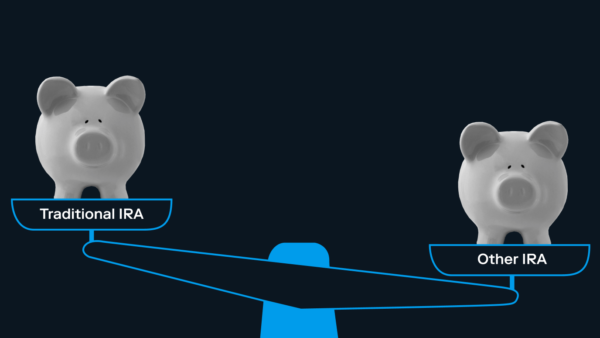
What Is a Traditional IRA?
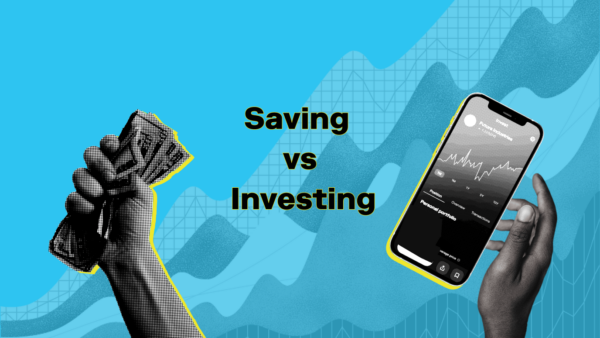
Saving vs. Investing: 2 Ways to Reach Your Financial Goals
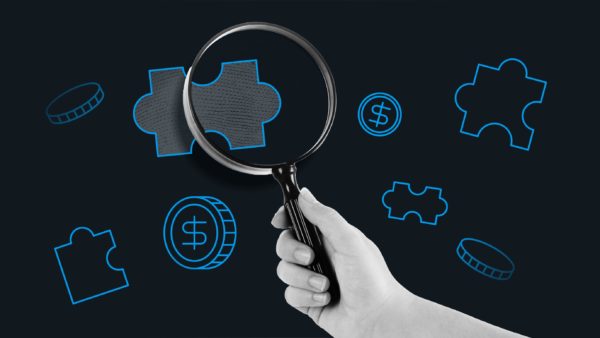
How To Invest in the S&P 500: A Beginner’s Guide for 2024
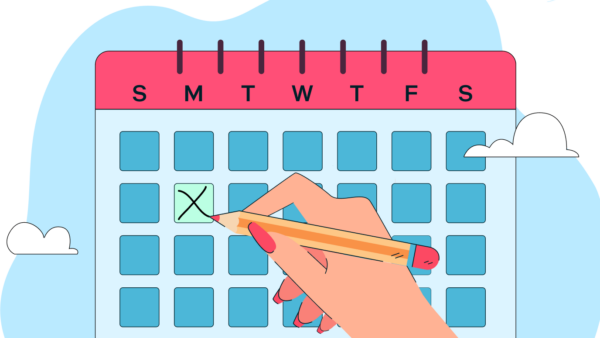
Stock Market Holidays 2024


